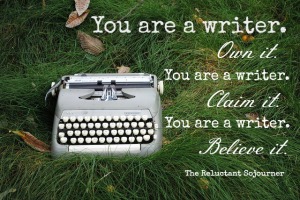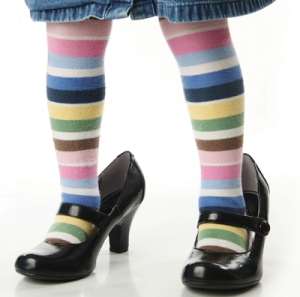Think about your creativity and desire to write (or create music, art, etc.). Now, complete this sentence: I am ______________. What do you put in the blank? Writer, author, artist, hobbyist, creative, imaginative? All are acceptable. All provide insight into how seriously you see yourself in regard to the writing occupation. Writers express through the written word. That simple. Period. In this sense, anyone working in business, anyone who needs to send letters or emails, is a writer.
 When I conducted writing workshops with at risk youth, the first thing I did was to convince them they were writers and readers. Dig down to the root, and everyone IS a reader, a writer, a communicator. We cannot get through the day without reading. Chances are we also have to communicate in writing, whether through notes, emails, or business documents. Getting these struggling students to embrace this fact had significant impact on how they saw themselves as communicators—and as students. For one group of these students, I made press passes for their name tags. They seemed to transform when they slipped into their seats with there “writing badges” on.
When I conducted writing workshops with at risk youth, the first thing I did was to convince them they were writers and readers. Dig down to the root, and everyone IS a reader, a writer, a communicator. We cannot get through the day without reading. Chances are we also have to communicate in writing, whether through notes, emails, or business documents. Getting these struggling students to embrace this fact had significant impact on how they saw themselves as communicators—and as students. For one group of these students, I made press passes for their name tags. They seemed to transform when they slipped into their seats with there “writing badges” on.
So what sets a creative writer apart from everyone else? The creative part. The need to share ideas, stories, worlds with others. Admit it. Few of us pursue this with the hope of sticking our manuscript in a drawer. Somewhere deep inside, we have a need to put these thoughts on paper and share them with others. This doesn’t require publication; we can share through email, blogs, desktop printed books for family and friends.
 Even achieving this goal, however, will be hindered unless you think of yourself as a writer. If you tell people, “I’m thinking of writing a book” that’s what you’ll do–think about it. Be bold with your goal. Tell people, “I’m a writer.” “I’m writing a novel.” “I’m drafting my family history.” If this feels too bland, or uncomfortable, try these references to your creative identity: “I’m an aspiring author.” “I’m pre-published in children’s fiction.” If you want to show your creativity, tell people, “I’m a Disney-esque Imagineer.” That will get their attention.
Even achieving this goal, however, will be hindered unless you think of yourself as a writer. If you tell people, “I’m thinking of writing a book” that’s what you’ll do–think about it. Be bold with your goal. Tell people, “I’m a writer.” “I’m writing a novel.” “I’m drafting my family history.” If this feels too bland, or uncomfortable, try these references to your creative identity: “I’m an aspiring author.” “I’m pre-published in children’s fiction.” If you want to show your creativity, tell people, “I’m a Disney-esque Imagineer.” That will get their attention.
I do remember what it feels like to have this desire to be published but to feel I was insulting those who had achieved this goal when I was still working to reach publication. It also felt that speaking my goal aloud was the equivalent of clomping around like a 3-year-old in her mother’s high heels. While searching out potential publishers, I asked to borrow the recent copies of Publisher’s Weekly and School Library Journal at the local library. (This was well before the internet.) The reference librarian was quite  suspicious. I stammered through, “I want to be a writer someday and an author told me I need to read these journals.” Finally I just said, “Look, I’m an aspiring writer. A few mentors from a conference told me I need to know and read current books in my genre.” It changed her reaction. It also forced me to see myself as a “pre-published” author. I was determined and after that, I called myself a writer. When people asked where I’d been published, I’d say, “So far in a few children’s magazines, but I’m working on a book proposal.” Sure, I did feel I had a lot of growing to do to fit into the those “author” shoes I slipped into, but I did grow and they fit nicely now.
suspicious. I stammered through, “I want to be a writer someday and an author told me I need to read these journals.” Finally I just said, “Look, I’m an aspiring writer. A few mentors from a conference told me I need to know and read current books in my genre.” It changed her reaction. It also forced me to see myself as a “pre-published” author. I was determined and after that, I called myself a writer. When people asked where I’d been published, I’d say, “So far in a few children’s magazines, but I’m working on a book proposal.” Sure, I did feel I had a lot of growing to do to fit into the those “author” shoes I slipped into, but I did grow and they fit nicely now.
This can happen for you, too. Instead of thinking about the story you hope to write, begin thinking of yourself as a writer. You may be amazed at the difference it will make in your creativity — and in how your friends and families view you. Whatever you do, enjoy the writing!
